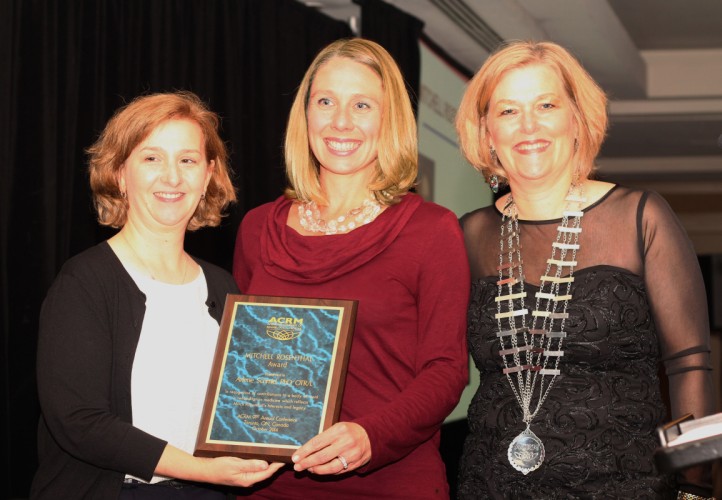The following article was written by Katy Kirkpatrick

Arlene Schmid, associate professor in the Department of Occupational Therapy, recently received the 2014 American Congress of Rehabilitation Medicine Mitchell Rosenthal Award.
The award ceremony was held at the 91st American Congress of Rehabilitation Medicine Annual Conference in Toronto, Canada. The award recognizes researchers with outstanding leadership and organizational abilities who have made significant contributions to rehabilitation medicine through ongoing research.
“Receiving this recognition was a true honor for me,” Schmid said. “I am delighted that my peers nominated me for an award from an organization with such a long and established history of rehabilitation research.”
The American Congress of Rehabilitation Science is an international, interdisciplinary organization of both researchers and practitioners that assists researchers in improving their investigations and dissemination of findings, educates providers to deliver best practices, and advocates for funding future rehabilitation research. Schmid has been involved with the ACRS for more than a decade; she has served on multiple committees, presented multiple times at the annual conference and published many of her research findings in the journal.
Schmid’s current research focuses on exploring how individuals develop a fear of falling and how falls impact the quality of life and everyday activities of people with stroke. She is also an internationally known researcher in the development of yoga interventions as a complement to rehabilitation for people with stroke, traumatic brain injury, and other injuries.
When asked why she chose this research path, Schmid replied, “It depends on the day, but overall I feel like I am truly helping people enhance their recovery. When people thank me for developing and testing interventions, and tell me that our program has changed their life or increased their quality of life, it makes it all worth it and helps me to know I am on the right path. I believe that clinically relevant research helps all of us – students, faculty, and most of all the study participants.”
In addition to her research, Schmid teaches graduate level coursework in the Department of Occupational Therapy and serves as the faculty mentor for both Pi Theta Epsilon, a national honor society for occupational therapy students, and the Student Occupational Therapy Association at CSU.